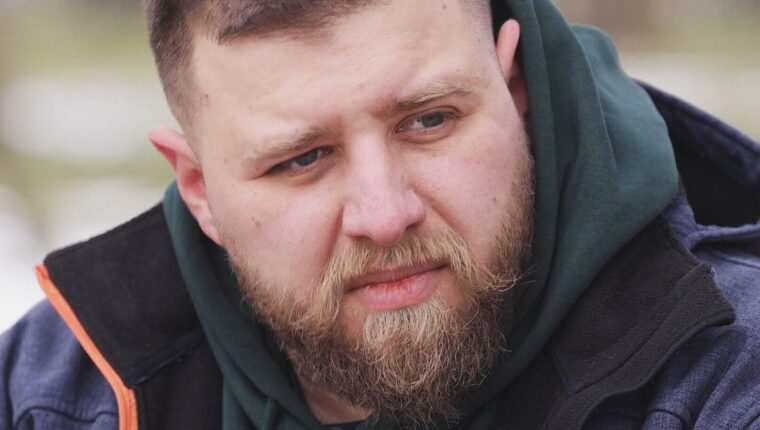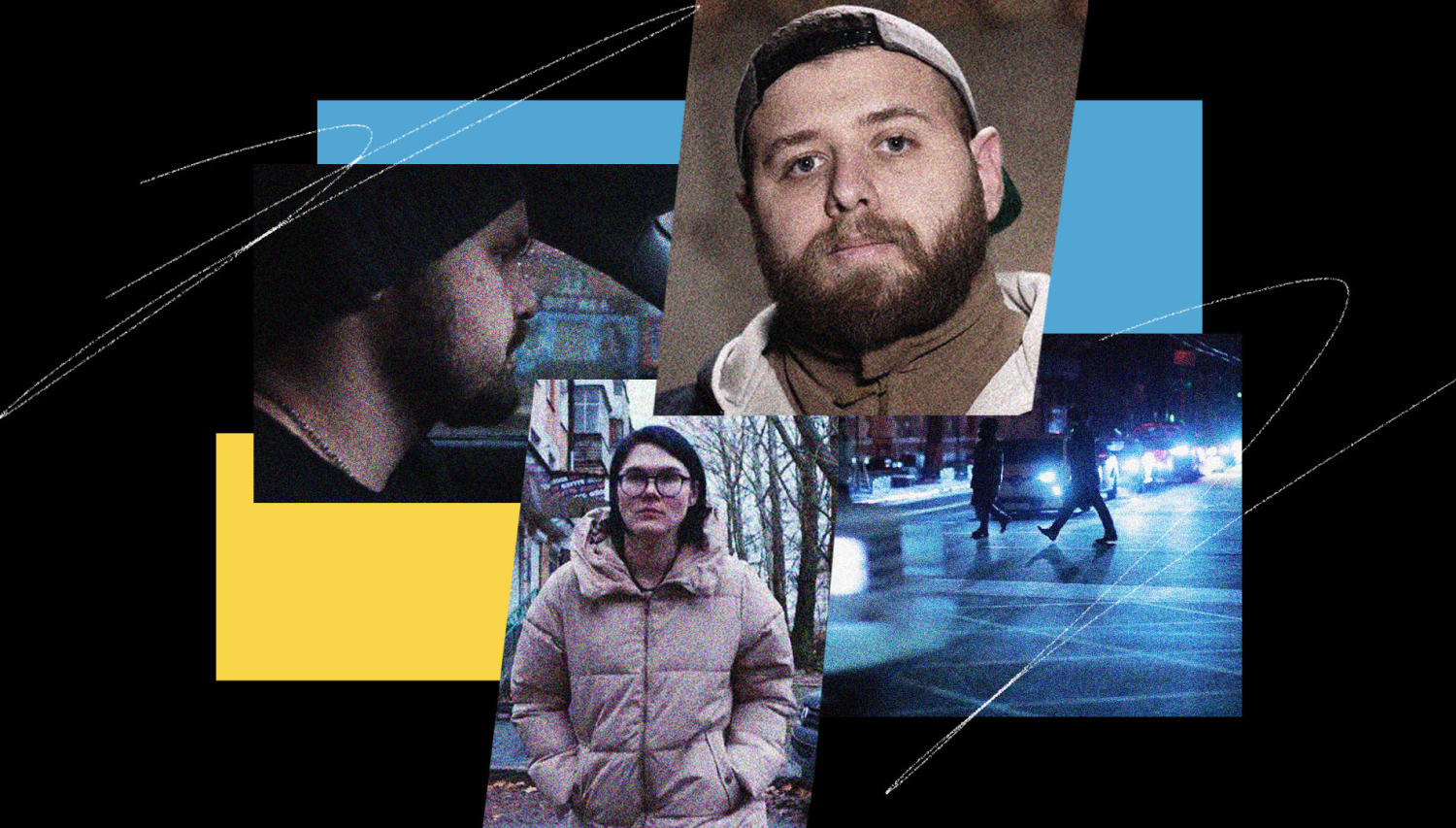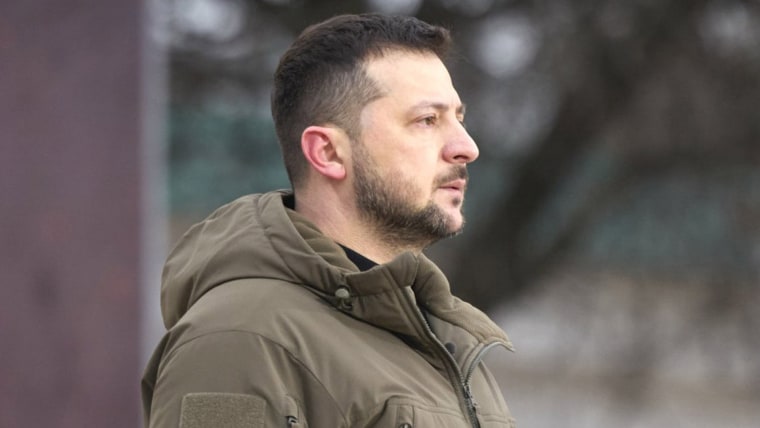KHERSON, Ukraine — At dawn on the second day of Russia’s invasion of Ukraine, car part salesman Vladyslav Nedostup watched a Russian tank emblazoned with the letter “Z” rumble down the street of his hometown, Kherson. Under the amber gloom of the streetlights, soldiers marched in formation alongside their war machines.
“It was like the tentacles of the Russian monster were entering our city,” he said. “Driving their armored vehicles slowly along the streets, covering them in darkness.”
That’s when Nedostup, 28, decided he would become a partisan and join the city’s underground anti-Russian resistance. According to his own telling, a man who had never fired a gun before would soon become a killer.
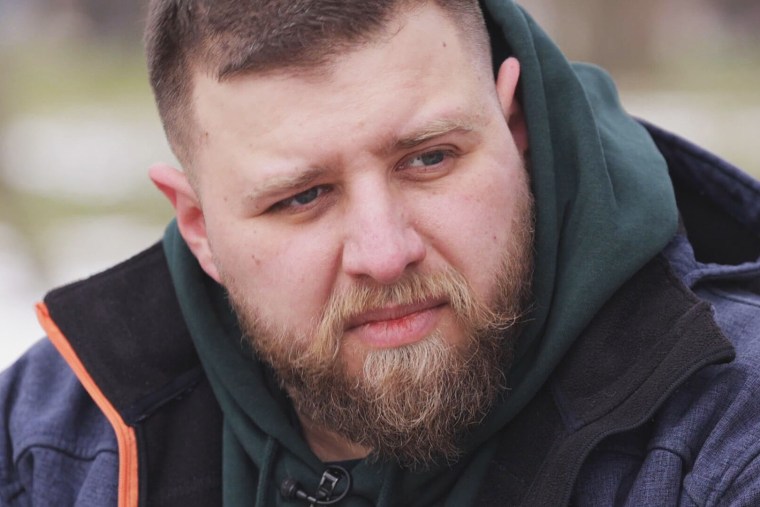
“I am not a trained guerrilla or an assassin,” he told NBC News during one of several lengthy interviews conducted over two visits to Kherson. “I just wanted to destroy them with my own hands.”
‘On Assignment with Richard Engel — Ukraine’s Secret Resistance’ airs Friday at 10 p.m. ET on MSNBC
Kherson was the first major city to fall to Russia after its forces invaded on Feb. 24, 2022. The Russians violently suppressed residents protesting against the Kremlin-appointed government for more than eight months, until the Black Sea city was liberated in November.
When Nedostup initially joined Kherson’s civil defense in the early days of the invasion, he was handed a rifle and sent to different positions to guard the city. But with the Ukrainian military quickly overwhelmed, the civil defense units disbanded.
With the Ukrainian army unable to enter the city, Nedostup and the rest of the resistance fought back as the Russians became more entrenched. He contacted the Ukrainian intelligence service and became a conduit to pass along information that could help the Ukrainian armed forces with their push to take back the city.
Nedostup knew he couldn’t do it alone, so he paired up with two old friends who remained in the city: a gregarious taxi driver, Mykhailo Kuanov, and Nastya Burlak, an easygoing bar manager.
Together, they developed a system to spy on and target Russian soldiers in the city and to pass the information on to the intelligence services.
Kuanov would drive around the city chatting with the Russian soldiers who were among his customers, getting information about their movements.
“Taxi drivers like to talk,” Nedostup, 30, said during several interviews. “Mykhailo is an expert at this.”
“The guys were so carefree that they didn’t even try to hide their whereabouts,” Kuanov said of the Russians. “I was picking them up from point A and bringing them to point B, and I knew that they were obviously not alone at point B, that there were quite a few of them.”
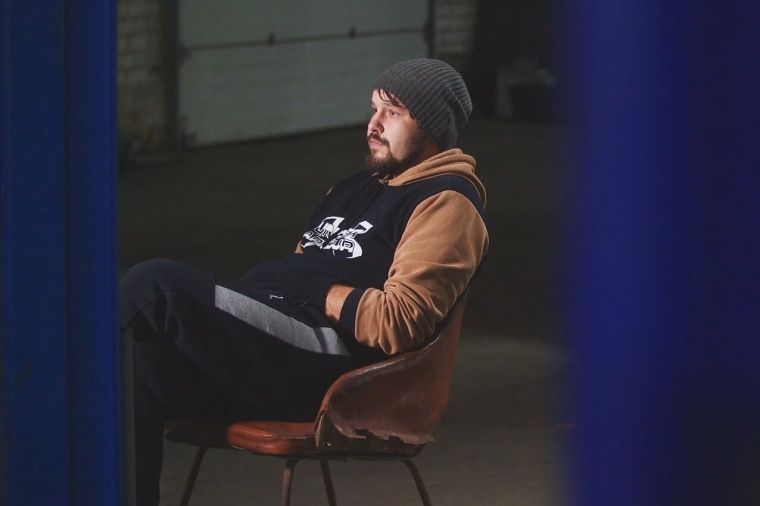
In the summer, Kuanov said he got a tip that the Russians were storing equipment inside a giant warehouse that had also been used as a shopping mall.
“Instead of running straight to Vlad and yelling, ‘Vlad, there’s equipment there!’ I thought I’d go for a drive,” Kuanov added.
Taxi drivers have the advantage of being able to drive anywhere in the city without raising suspicion, so Kuanov scoped out the site to confirm that Russian equipment, mostly vehicles, were being stored inside.
After receiving the information from Kuanov, Nedostup went onto Google Maps, highlighted the shopping mall and sent the screenshots and coordinates to Ukrainian intelligence. Other partisans in the city also worked on targeting that building, and in September the building was destroyed by Ukrainian airstrikes.
Nedostup and Kuanov said they didn’t know if anyone had been killed in the strike.
Kuanov said he wouldn’t be sorry if the air strikes that he helped make possible ended up killing Russian occupiers.
“I can’t say I wished them dead,” Kuanov said, “But wait a minute guys, I didn’t ask you to come here and ‘liberate’ me.”
An eye on Russian clientele
Meanwhile, Burlak, the bar manager, was keeping an eye on her Russian clientele.
To mess with the invaders, Burlak, 30, and the other staff would sometimes intentionally mix up their pizza orders or upsell them on the more expensive drinks.
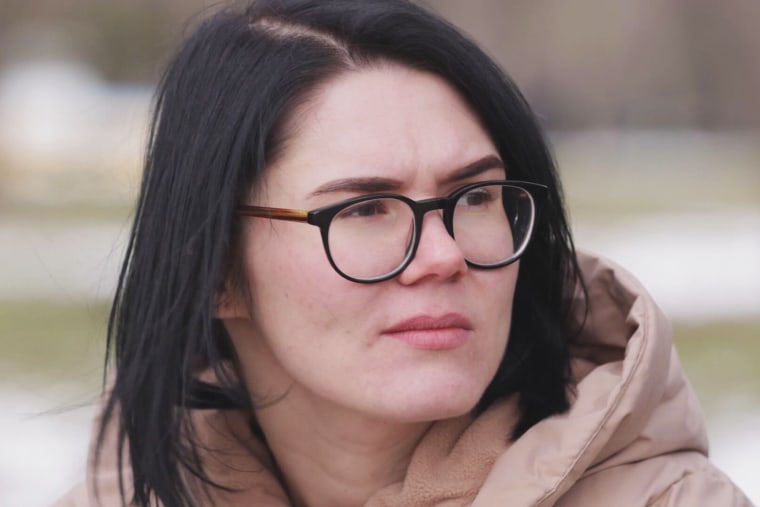
But she and her staff had to be careful and focused despite the hijinks.
“The Russians in the bar were very cruel,” Burlak said, describing how soldiers would come to her bar in the middle of the day, order whiskey by the bottle, eat plates of crayfish and carouse with prostitutes.
Burlak said the soldiers could turn on her or her staff in an instant.
“You had to think carefully so you wouldn’t blurt something out and accidentally provoke them,” she said. “The possibility of ending up in a dungeon frightened me most because that’s where people were tortured and women were raped.”
She also noticed that the soldiers were sloppy, getting wasted, and sometimes forgetting their weapons in the bar.
This kind of information was useful to Nedostup and would lead him to take his most aggressive action yet.
One night, Nedostup said he noticed a lone Russian soldier coming out of another bar.
The soldier was about 25 years old, a little drunk, unarmed and wearing headphones, making it easier for Vlad to tail him as he walked in the dark. Vlad followed him past an old playground, around the aging Soviet-era apartment blocks, until they were on a dark path beside a row of low brick school buildings.
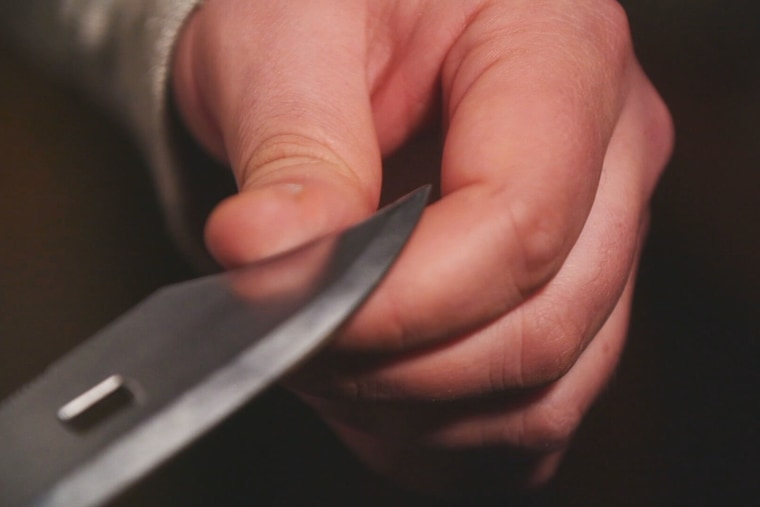
Nedostup said that’s when crept up behind the soldier, grabbing him by the neck and sticking a knife in his back to the right of the spine.
“I wanted to pull out the knife but instead I twisted it inside,” Nedostup said.
As the soldier screamed and tried to fight back, Nedostup covered his mouth with his hand. The soldier bit him as a last resort before falling to his death.
NBC News cannot independently confirm Nedostup’s account of the killing, but other partisans in his group said they were aware of his actions. In separate interviews, other partisans said Nedostup had told them about the location and manner of the killing after it took place, but had only been comfortable sharing these accounts after Kherson was liberated.
In January, NBC News visited the site where Nedostup said the killing happened. He was visibly trembling, shaken by having to relive the memory. But asked if he had any regrets, he shook his head “no.”
“What helps me not to feel remorse or suffer is that I was right,” he said. “They are destroying us. They are killing my loved ones. They seized my city.”
Source: | This article originally belongs to Nbcnews.com
